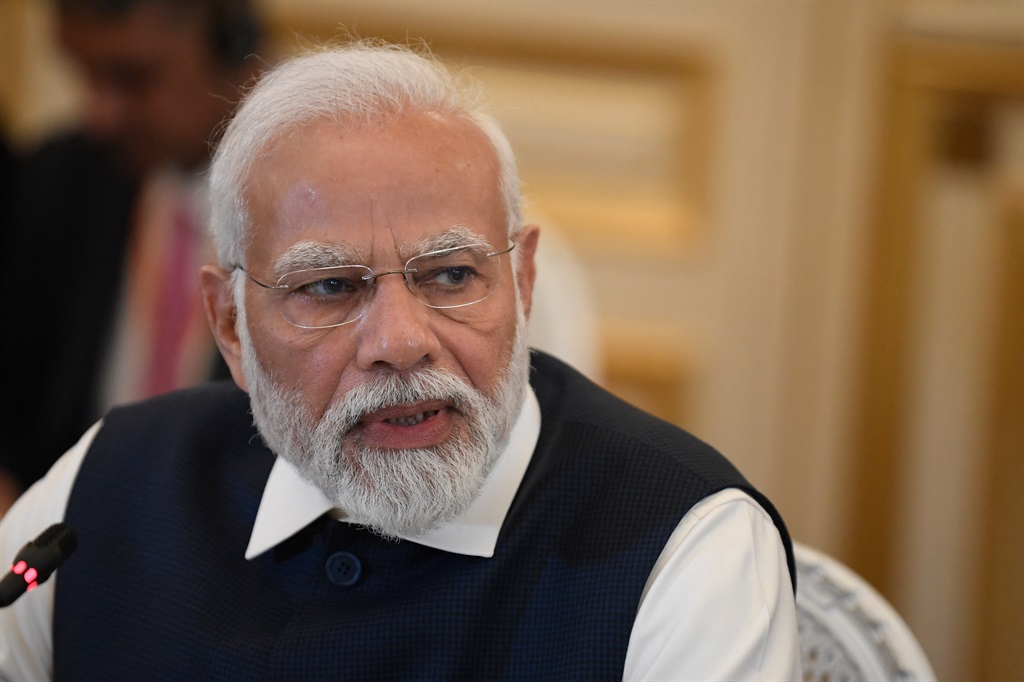
As the diplomatic row between Canada and India escalates after the former accused the latter of an assassination on foreign soil, Imraan Buccus writes India has crossed a line and there will be consequences.
On 18
September, Canadian Prime Minister Justin Trudeau stunned the world by making a
statement in the Canadian Parliament where he noted "credible
allegations of a potential link" between Indian government agents and the
killing in Canada of a Canadian citizen, a prominent Sikh activist.
He further asked the Indian government to cooperate with a probe into the assassination.
Hardeep Singh Nijjar was a Canadian Sikh leader who advocated for a separate Sikh state within India and is, bizarrely, considered a "terrorist" by the Indian government.
On 18 June this year, Nijjar was murdered in Surrey, a city in Canada's western-most province of British Columbia.
The Canadian government took the view the Indian intelligence agency, the Research and Analysis Wing (RAW), was responsible for the murder.
In response to the murder, Canada expelled an Indian diplomat, Pavan Kumar Rai, the RAW spy master in Canada due to his suspected role in the murder.
READ | Canada links India to slaying of Sikh exile, expels intel chief
Canadian media reported the Canadian government had amassed both human and signals intelligence in a months-long investigation into the murder.
CBC News reported the intelligence included communications of Indian officials present in Canada, adding some of the information was provided by an unidentified ally in the Five Eyes alliance (an intelligence-sharing network that includes the US, UK, Canada, Australia, and New Zealand).
The Canadian concerns were duly backed up by the US when Secretary of State Antony Blinken told reporters in a press briefing:For its
part, the Indian government flatly denied the "allegations" calling
them "absurd" and later expelled a Canadian diplomat from New Delhi.
However, the Globe and Mail newspaper reported Canadian national security authorities have "what they consider credible intelligence that India was behind" the killing of Nijjar.
Intelligence agencies in countries like Israel, Rwanda, the US, and Russia have become notorious for "taking out" opponents on foreign soil. The apartheid state did the same.
In the recent past, we know about several such operations by foreign intelligence agencies in Iran and elsewhere.
READ | Be careful in Canada, India tells its citizens after Canada accuses it of murder
As is always the case in international relations, there is a crude double standard in terms of how state-backed assassinations on foreign soil are received.
If the perpetrator is the US state, or a state aligned to it, such as Israel or Rwanda, the action is, explicitly or implicitly, deemed acceptable.
However, if the perpetrator is a state that is in conflict with the US, such as Russia, the action is deemed a moral and political outage.
In this case what is unusual, even shocking, is that a Western ally, India, has assassinated a political dissident in a powerful Western country.
The question that arises is why India chose to take out an opponent on Western soil?
The answer lies in the nature of the sitting Indian government.
India's 'experience' with violence
There are two aspects to this. The first is the internal political character of the regime in New Delhi.
The Hindu extremist government of the BJP, led by Prime Minister Narendra Modi, is not just Hindu extremist. It is widely described as fascist.
The second is there has been international impunity for the actions of a fascist government.
Emboldened by its economic potential and the lack of international recrimination following the massacre of Muslims in Gujarat in 2002 and the brutal suppression of Kashmiri separatists, the Indian government has become assertive enough to behave like a "superpower", allowing its intelligence to act aggressively in foreign lands, just like the CIA and others.
READ | Indian school faces criminal probe after rightwing backlash over multi-faith prayers
As the Canadian concerns over RAW surfaced, Pakistan was quick to remind the world about the activities of Indian intelligence, which it presented to the UN in the form of a dossier in November 2020.
Pakistan Foreign Secretary Syrus Qazi told journalists in New York: "We are not surprised over Canada's allegations. We know the nature and the mode of behaviour of our eastern neighbour."
Substantiating India's involvement in subversive activities in Pakistan, Qazi said Pakistan had apprehended Indian spy Kulbhushan Yadav, a serving RAW officer who had admitted his acts of terrorism in Pakistan.
Just like the killing of Nijjar in Canada, Indian involvement in Pakistan in a similar assassination attempt was noted following a blast that took place on 23 June 2021 in Lahore, outside the residence of Hafiz Muhammad Saeed, a Pakistani citizen whom India alleges to be a "pro-Kashmir terrorist".
Moeed Yusuf, the then-Pakistani National Security Advisor, said on 5 July 2021:Pakistan
continues to claim India sponsors acts of terrorism in Pakistan.
India will face consequences
India is aspiring to be the next superpower and is seeking a permanent seat on the UN Security Council.
The West welcomes India's rise as a counter to China but still demands India be its junior partner, not its equal.
The West accepts India's oppressive treatment of its minorities and cruel suppression of the people in Kashmir, but it cannot accept India's refusal to accept its status as a junior partner to the West.
India has already rattled cages by refusing to isolate Russia.
READ | Narendra Modi’s plan to change India’s name is ‘absurd’, says opposition leader Rahul Gandhi
This latest act of perpetrating an assassination on Canadian soil has demonstrated it seems to consider itself no less entitled to impunity than the US or Israel.
This situation will lead the West to call into question India's reliability as a credible and responsible player in the emerging world order.
After all, the impunity that states like the US, Israel and Rwanda must use their intelligence agencies to assassinate people does not extend to unauthorised actions within the territory of the most powerful Western states.
India has crossed a line here, and there will be consequences in terms of its relationship with the West.
- Dr Imraan Buccus is a political analyst*Want to respond to the columnist? Send your letter or article to opinions@news24.com with your name and town or province. You are welcome to also send a profile picture. We encourage a diversity of voices and views in our readers' submissions and reserve the right not to publish any and all submissions received.
Disclaimer: News24 encourages freedom of speech and the expression of diverse views. The views of columnists published on News24 are therefore their own and do not necessarily represent the views of News24.




 Publications
Publications
 Partners
Partners























